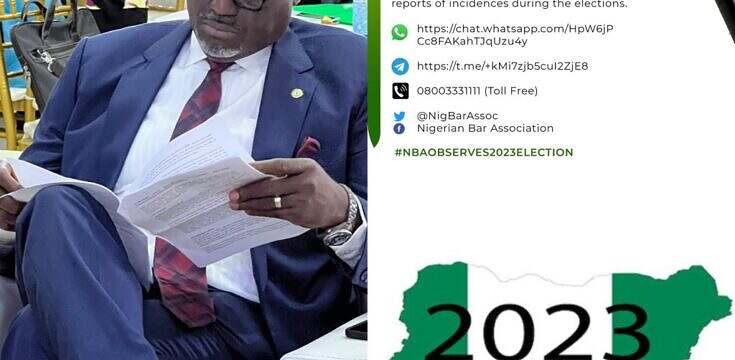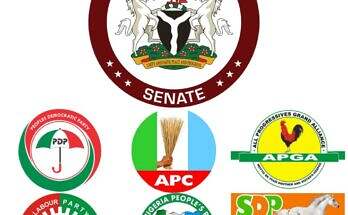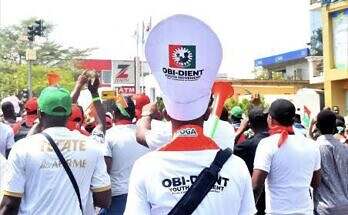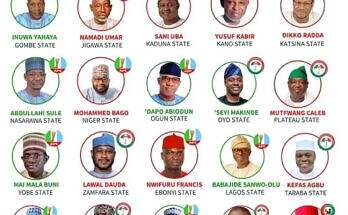INTERIM REPORT OF THE PRESIDENTIAL & NATIONAL ASSEMBLY ELECTIONS OF THE FEDERAL REPUBLIC OF NIGERIA
1. INTRODUCTION
On January 12 2023, the President of the Nigerian Bar Association (NBA), Yakubu Chonoko Maikyau, OON, SAN constituted the NBA Election Working Group, chaired by Mrs. Linda Rose Bala, the 1st Vice President of the NBA, with the mandate to constitute the NBA Observation Team and liaise with the Independent Electoral Commission (INEC) for members of the Team to be accredited for the purpose of observing the 2023 General Elections.
The Working Group deployed over 1000 INEC accredited observers drawn from the 128 Branches of the NBA. To ensure coherence and effective coordination of reports from the NBA Observers, the NBA President subsequently set up the NBA 2023 Election Situation Room to receive and harmonise reports of the NBA Election Observers from across the country on the conduct of the 2023 General Elections.
This is an interim report of the NBA Election Working Group of the Presidential and National Assembly Elections held on February 25, 2023. This interim report is based on the reports sent to the NBA 2023 Elections Situation Room by the NBA Election Observers from the 36 States of the Federation and the Federal Capital Territory (FCT).
2. METHODOLOGY.
The NBA 2023 Elections Situation Room received more than 2250 reports from NBA Election Observers. These reports covered all the 36 States of the Federation and the FCT. The reports were received through the NBA election observer app, social media handles, and toll-free lines. The application developed and deployed for the observation can identify the geo-location of the observer. With this, reports received in pictorial or video forms were verifiable and confirmed using the app’s features.
The reports of the observers, as received and recorded, are as presented in Paragraph 4 below.
3. SUMMARY OF FINDINGS OF ELECTION OBSERVERS.
Despite the challenges faced by INEC and voters at the polling stations, NBA observers expressed some satisfaction with the conduct of the election on 25 February 2023 but have also identified major challenges that should be addressed for future elections. These are:
a) The late arrival of INEC officials and ballot materials at the polling stations.
b) Malfunctioning BVAS machines. This caused delay in voter accreditation.
c) Few or non-transmission of the results from the polling units to the INEC results portal.
d) Insecurity at some polling units including violent attacks on voters and officials, voter intimidation, snatching and destruction of voting materials.
e) Significant cases of vote-buying.
f) Limited access facilities for persons living with disabilities.
Voter Satisfaction.
Reports received at the Situation Room from the observers across the country were assessed as to the level of satisfaction of voters with the accreditation and voting processes. The findings indicated that only a quarter of the electorate were excellently impressed with the conduct of the ballots (27.1%) while majority of the voters (64.6%) were somewhat satisfied. Only 8.2% rated the election poor or very poor.
4. OVERVIEW OF SPECIFIC FINDINGS.
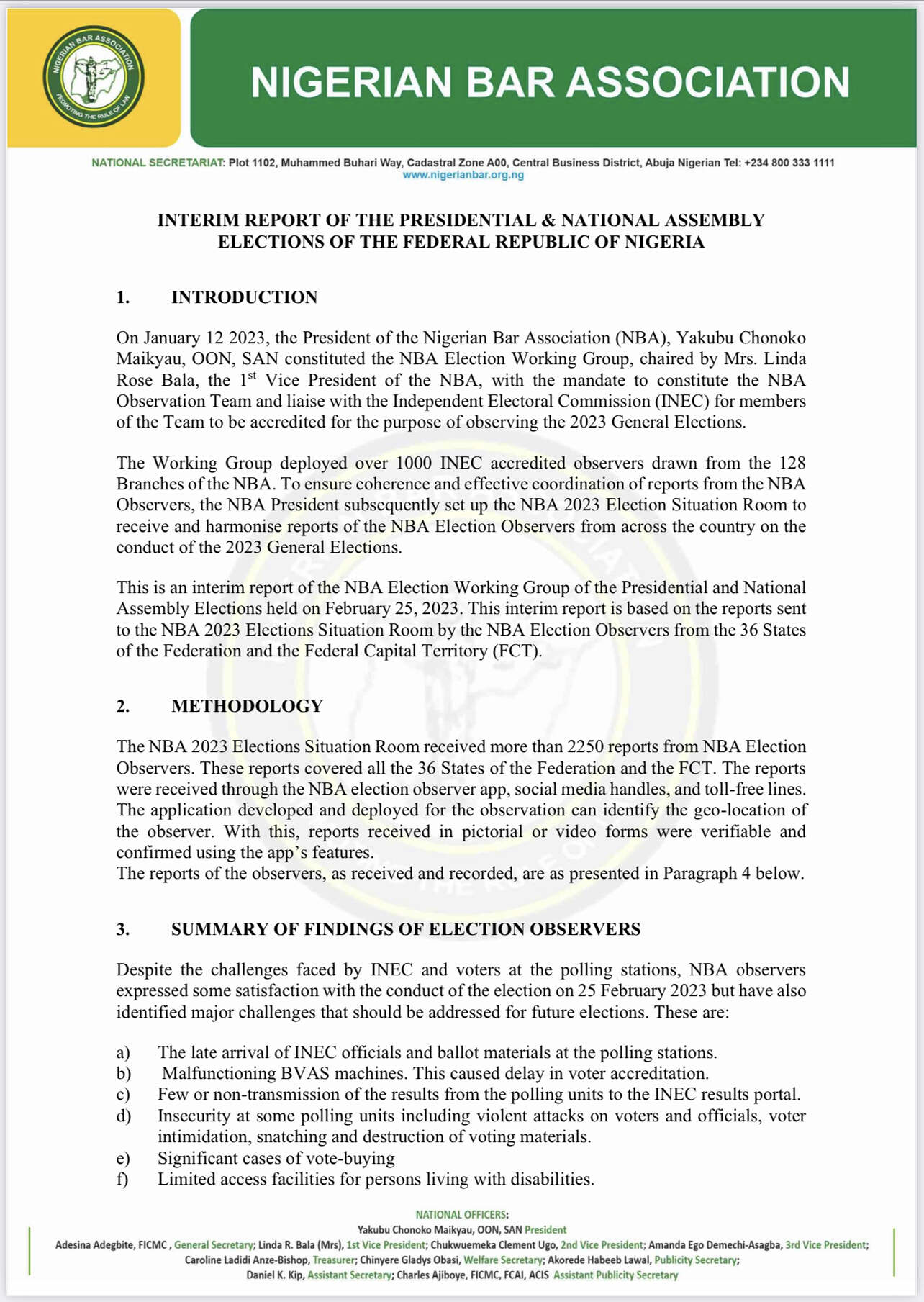
4.1 ACCESS OF VOTERS TO POLLING STATIONS. While it was relatively easy for some voters to locate their polling units there were situations where voters could not find their names because their polling units had been changed without any notice. In the weeks running up to the elections, INEC had reallocated overpopulated polling units. NBA observers found that some voters encountered difficulties in locating these re-allocated polling units.
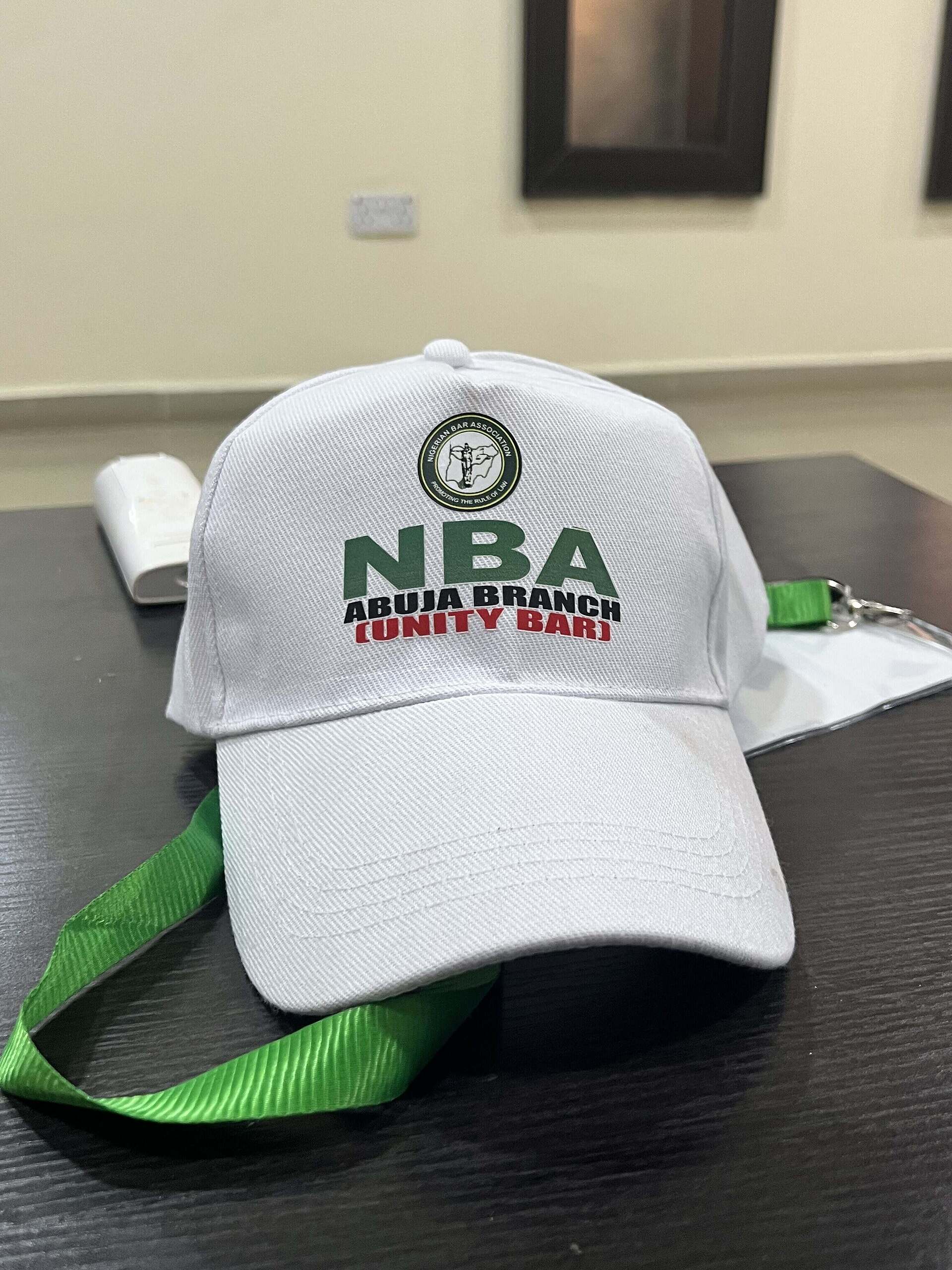 In the FCT, one such example was the change of polling unit to AMAC, Ward 022, PU Gui, and a voter was told no PU existed at the location. Many polling officials also found it difficult to locate the new polling units, thereby causing delay in their arrival, a general problem that characterised the election.
In the FCT, one such example was the change of polling unit to AMAC, Ward 022, PU Gui, and a voter was told no PU existed at the location. Many polling officials also found it difficult to locate the new polling units, thereby causing delay in their arrival, a general problem that characterised the election.
There were also reports that many persons living with disabilities (PWD) found it difficult to access PUs. In many of the reports received, there were few PUs with appropriate structures for easy access to persons using wheelchair. There were also neither provision for sign language interpreters for the deaf, nor braille ballot papers to guide the visually impaired. They had to rely on other voters to explain to them how to vote. In some polling units, while PWD were given priority to vote out of turn, accessing the polling structures was a big challenge.
4.2. AVAILABILITY OF VOTING MATERIALS, INCLUDING TIMELINESS.
At most polling units, voting materials arrived late, thus, upsetting the flow of the electoral process and causing voter agitation and rowdiness. It was reported in Bourdillion Road Polling Unit 055 in Lagos Sate that as early as 8.00AM, voters had arrived, but INEC officials and materials arrived at 10.30am.
In the FCT, a voter who reached out to an INEC official was told that while all voting materials were available prior to the election day at the rack centre, transporters didn’t get to the centre at the agreed time of 5AM but came in at 8AM. In Anambra State, Onitsha South LGA, at Ward 2, 007 Central School Odakpu PU, there was no electoral officials or materials at 1:20PM.
In Delta State, there were no voting materials in Sapele LGA, at Ward 01, PU 11 as at 5:15PM.
There were cases where security threats delayed the early deployment of INEC officials and materials. In Ihiala LGA of Anambra State, no INEC officials and materials left the rack centre at the LG headquarters until 12.30PM, when there was confirmation of ample security at the PUs. Similar delays were experienced in many parts of the country affected by the high level of insecurity. In Warri South LG of Delta State, INEC officials and voting materials did not arrive any of the PUs in the LG as at the official close of polls.
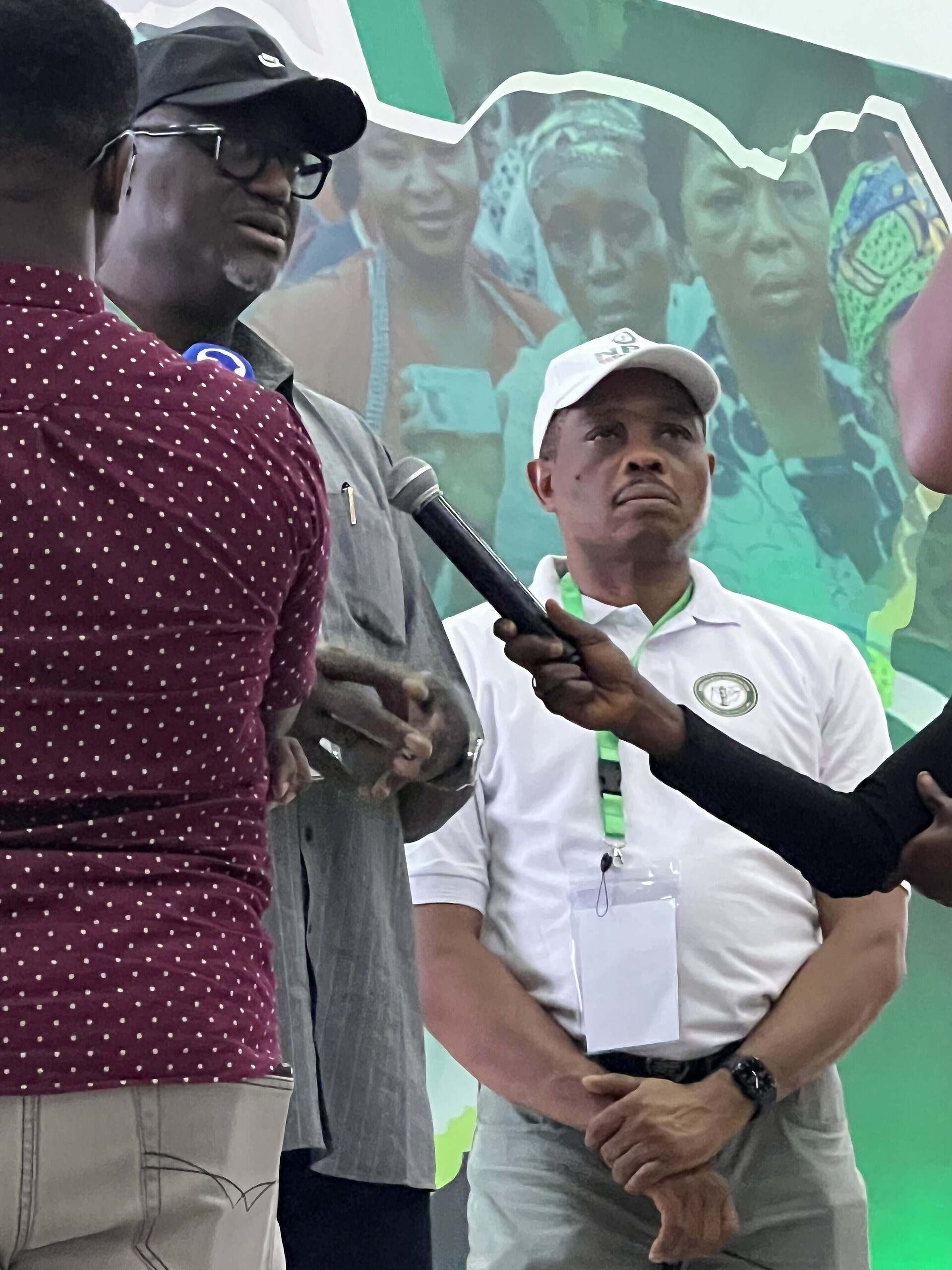 The NBA President had in his mid-day report on the election day called on INEC to extend time for polling in such places of delayed arrival of polling materials or reschedule the accreditation and voting in places elections did not take place due to late arrival or non-delivery of election materials.
The NBA President had in his mid-day report on the election day called on INEC to extend time for polling in such places of delayed arrival of polling materials or reschedule the accreditation and voting in places elections did not take place due to late arrival or non-delivery of election materials.
There were other cases of insufficient materials at various PUs. A case in point was insufficient materials in all the PUs in Ward 7, Port Harcourt LGA of Rivers State as at 4:35PM. In Imo State, at the Imo State Teaching Hospital PU, Ward 010 of Orlu LGA, accreditation had not commenced as at 5:47PM.
Many of our observers across several states and the FCT reported that because of the late arrival of polling materials and late commencement of the accreditation process, voting and counting of votes lasted into early hours of Sunday 26 February in some PUs.
4.3 COMPLIANCE BY INEC OFFICIALS WITH INEC GUIDELINE ON ELECTION DAY TIME FRAME.
Just as there were gross delays in delivery of voting materials, there were also reports of late arrival of INEC officials at the PUs. In 25% of PUs covered by NBA observers across Nigeria, INEC officials arrived late.
In Polo PU, Ward 059 of Jere LGA in Borno State, officials didn’t arrive as at 12:03PM while in Delta State, Warri South LGA at Idama Ward, 012 PU, the officials were yet to arrive as at 5:20PM.
However, our observers reported that once they arrived the PUs, most polling officials speedily commenced accreditation and voting, despite the rowdiness caused by the late arrival.
It was reported that the two INEC phone lines for complaints: 0908 444 333 and 0905 085 8629, remained unreachable throughout the election day. This was a source of frustration to voters and observers alike who had issues to report at their PUs.
4.4 CONDUCT OF OTHER STAKEHOLDERS INCLUDING PARTY AGENTS AND ELECTION MONITORS/OBSERVERS.
Most reports from NBA observers regarding security during the voting process indicated late arrival or no presence of security operatives. An example is in the FCT, AMAC LGA, at Ward 014, Kapduma Primary School PU, where no security official was seen as at 12:08PM. A lot of reports of late arrival were also witnessed in Rivers State as various PUs had no security officials present. There were reports of vote buying in many states including Delta, Lagos, and the FCT. In Ward 5, Uewie LGA, Delta State, observers reported that party agents were paying prospective voters money. In AMAC, Apo Town Hall PU, it was reported by an observer that EFCC officials intercepted a party agent sharing money to voters. Other observers reported that bank transfers were made by party agents to voters in exchange for their votes. NBA notes that only 14% of the observers reports indicated incidents of vote buying.
There were also reports of party agents intimidating voters. A report from Oshodi/Isolo LG PU video-recorded a party agent threatening voters who were not going to vote for his party to leave the PU. Also, in Education Officer PU, Ward 004, Idah LGA of Kogi State, there were reports of intimidation of officials and voters by party agents.
NBA observers reported the presence of domestic and international observers in many Pus in State Capitals across the country but observed their limited presence in rural and riverine areas.
4.5 FUNCTIONING OF BVAS – DOES THE ELECTRONIC DEVICE CONTRIBUTE TO CREDIBLE AND SPEEDY VOTING PROCESS?Whilst there were numerous cases of late arrival of the BVAS and the INEC officials, it can be surmised that the BVAS contributed to a speedy voting process when it worked. However, there were reports of some challenges with the BVAS including:
a) Non-Verification of some voters. In some PUs, several voters whose names appeared on the voters register and who claimed they had voted in previous elections were not verified by BVAS. There were many of such cases in PUs 120, 130 and 021 in the Presidential Villa Ward, FCT and in PU 03 Okemesi-Ekiti Ward 10 in Ekiti State.
b) Some INEC officials were not conversant with the operation of the BVAS, leading to delays in accreditation and voting, and uploading the results sheets into INEC portal. This was experienced in Sports Club PU in Enugu North LGA, Enugu State.
c) Non-functional BVAS, e.g. in Calabar Municipality, Ward 2, PU University of Calabar Teaching Hospital Gate, Permanent site, Cross River State; Amuwo Odofin LGA, Ward Festac 2, Lagos State.
d) Poor programming of the BVAS, some of which did not have the records of some voters for accreditation, this was reported from PU017 Yimir Kila Primary School, Kwaajaffa Harang Ward, in Hawul LGA of Borno State.
It was however noted in many of the PUs with malfunctioning BVAS, that INEC provided alternative machines. In all, our observers commonly reported that all accreditations were carried out with BVAS and voters’ Permanent Voters Card (PVC).
4.6 DEGREE OF FAIRNESS OF THE ELECTION. There were substantiated reports of the logo of some political parties missing on the ballot papers that were distributed to some parts of the country, e.g., the Labour Party logo for House of Representative election were missing.
There were reports of insufficient ballot papers. The NBA observers at Karimu Primary School PU, Life Camp, FCT reported that the Presidential ballot papers were reported exhausted by the officials when many accredited voters had not voted. An observer quoted an INEC official in the PU saying they were given 300 ballot papers even though they had 650 registered voters in the PU. Some observers noted INEC did not anticipate the large turn-out of voters at the election.
There were also cases of non-access to voting booths orchestrated by either voters or thugs, e.g., Alimosho, Polling Unit 114, Alimosho LG, Lagos.
4.7 SPECIFIC ELECTORAL OR VOTING MISCONDUCT.
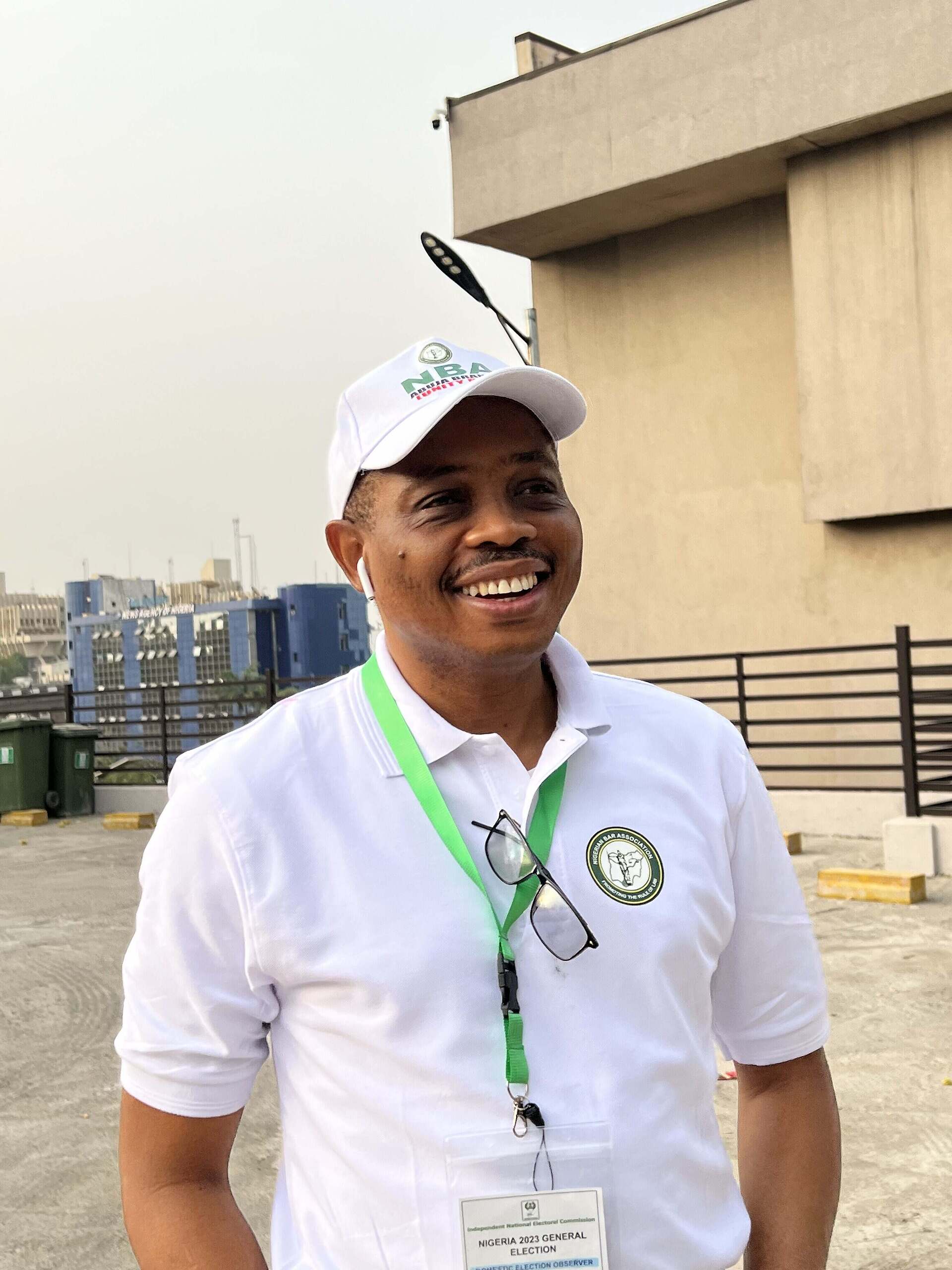
The NBA Observation Mission across Nigeria observed reported specific electoral or voting misconduct in many PUs across the country. These include:
a) Vote buying. There were reports of party agents collating names and giving money to voters while some officials joined voters in the voting booth to buy their votes. In a PU in Oshodi/Isolo, Lagos state, it was reported that a party agent was transferring money to voters from his phone. However, the cases of vote buying were not rampant or brazen as in previous elections.
Also in PU 085 LEA Primary School, Mbape, Abuja, arrests were made by the EFCC of some people writing their names and account details intended for vote buying.
b) Intimidation. The NBA Observers reported incidents of destruction of voting materials by party agents at various PUs, e.g., LDA Zuba Federal Housing Estate, Zuba – Abuja; voters were chased away to go to INEC Headquarters in Ciroma Yahe Kirt/UBA, Borno State; some voters were barred from voting at PU 014, Lagos Mainland Epetedo (Costain), Lagos. In Lagos, there were reports of many party agents threatening voters on the queue for accreditation that they must vote a particular candidate or leave the PU.
c) Violent conduct/threats against INEC officials/ voters. There were various reports of violent conduct and threats against both INEC officials and voters; thugs checked ballot boxes to see how voters voted, party agents overran the INEC officials taking over their jobs, e.g., at Ibeju Lekki, (Oluwa GRA) Lagos, officials and voters were threatened and the voting exercise was stalled. It was also reported that election did not take place at all in some parts of Ihiala LG of Anambra State due to serious security concerns and open threats against INEC officials, voters, and security agents. The Police intervened at PU 35, Gbanzago extension, Kubwa, Abuja when thugs attempted to disrupt the polls.
d) Violent conduct/threats against security agents. At some PUs, the security agents were rendered incapacitated by thugs who overran the PUs. In Lagos State, reports from observers in PU058, Alimosho LG showed verified video of thugs driving away security agents from the PU.
e) Threats and/or tampering with election materials. At PU 171, Oba Palace, Owode Town in Ogun state, the NBA observers reported that party agents tore the voters list and the ballot papers were strewn across the PU and voters chased away. Ballot box was snatched at Polling Unit 066 Itire Road, by Itire Johnson Bustop, Lagos while in Anyigba, Dekina LGA Kogi State, the PUs was destroyed.
The NBA Observers in Lagos State reported several incidents of violent destruction of ballot materials. In many other parts of the country, our observers reported absence of violence, notwithstanding the rowdy accreditation and voting processes in some instances.
4.8 Rowdiness at polling stations.
There were reports of rowdiness at various polling stations across the country. For example, in Benin City, Polling Unit 001 (Imaguro college), Edo State, there was chaos and unruly behaviour.
However, some rowdiness in PUs were caused by the late arrival of INEC officials and late start of the electoral process. In some instances, the rowdiness was occasioned by slow or malfunctioning BVAS machines, or insufficient ballot materials. At Ward 008, Okpe LGA, Delta State, a significant part of electorate was yet to vote as at 3:48pm.
PROVISION FOR POLITICAL PARTIES ON THE BALLOT PAPER.
As mentioned above, in some instances, logos of parties that have been duly registered by INEC were missing on ballot papers. This peculiar case was widely reported in Lagos State where the logo of the Labour Party was conspicuously absent from some ballot papers for House of Representatives given to PUs. Such PUs were Ward 600, Ajegunle Ajeromi, Lagos; Yovi/Wegbo Junction, Polling Unit, Onike Yaba, Lagos (Lagos Mainland), to mention a few.
4.9 PROVISIONS FOR PERSONS LIVING WITH DISABILITY (PWDs).
Whilst it has been reported that persons living with disabilities were given priority to vote, it should be noted that in many PUs, there were no provisions for them. The NBA Observers noted the difficulties faced by PWDs in Zappa Junction PU, Ward 7, Oshimili South LGA, of Delta State and many PUs in Rivers State. At Gbagyi Dancing ground, Jahi 1, Abuja, there were no sign language interpreter and braille ballots for the visually handicapped voters.
4.10 COLLATION OF VOTES.
With delays in commencement of accreditation and voting, many PUs did not end voting till late in the evening or, in some cases, into early hours of Sunday February 26. In PUs where voting was concluded, NBA observers widely reported that voters waited for the ballots to be counted, and registered in the result sheets. After the tallying and counting of votes, most PUs polling agents found it difficult to upload the results to INEC portal using the BVAS machine, for various reasons ranging from lack of network to lack of proper skills or clear instructions from INEC.
In many PUs, it was reported that the INEC server was not opening to enable officials transmit the results such as in PU 096 Gwarimpa, Abuja. In Takur Site Dispensary 002, Jigawar Tsada, Dutse, Jigawa State, INEC officials failed to display election result saying that it cannot instantly upload same via BVAS except it is done at the ward collation centre. As a result, by the time results are being collated at National level, most PU results were not yet uploaded, as had been expected by the INEC guidelines.
4.11 LEVEL OF COMPLIANCE BY STAKEHOLDERS IN THE VOTING PROCESS, THE DEGREE OF FAIRNESS OF THE ELECTION AND THE STEPS TAKEN TO ENSURE THAT EACH VOTES COUNTS
The NBA Observers reported considerable degree of compliance by key stakeholders with the voting procedures. The security agents conducted themselves well in many instances despite the rowdiness and late commencement of accreditation and voting. However, there were pockets of reports about attempts by security agents and party agents trying to manipulate the ballot. In PUs 004 and 008, Ward 14, Post Office, Onitsha, Anambra State, party agents and security personnel were seen signing forms for the computation of results after voting ended. In PU 008 Baptist Layout, Jos North, Jos Jarawa, Plateau State, party agents and accredited observers inspected the BVAS available.
The NBA Observers reported that in almost all PUs where there were no cases of upheaval or destruction of voting materials, the secret ballot procedure was well respected. The booths were, at most PUs, kept at a safe distance from other voters and the officials and voters cast their vote seamlessly.
In most polling units, priority was given to the aged, persons living with disabilities, pregnant women, and nursing mothers.
5. RECOMMENDATIONS.
5.1 NBA urges INEC to identify issues from the 25 February election, and the lessons drawn therefrom, with a view the same in the 11 March 2023 Governorship and State Assembly elections.
5.2 INEC should ensure that election materials are dispatched on time to the Polling Units so that the accreditation process will commence on time. This will ensure that registered voters are given the opportunity to exercise their right to vote without being unduly disenfranchised.
5.3 INEC should make provisions at all PUs for persons living with disabilities.
5.4 INEC should ensure that all bugs or glitches in the BVAs machines and other election technology are fixed and improved for the 11 March 2023 Governorship and State Houses of Assembly elections, to reduce technical issues experienced in the 25 February elections.
5.5 All INEC staff (including collation and returning officers) with proven cases of misconduct in the 25 February 2023 election be excluded from the 11 March 2023 election, without prejudice to further disciplinary action including criminal prosecution, where appropriate.
5.6 INEC should ensure further training of its polling staff on the use of BVAS machines, including how to upload the results of the elections directly from the PUs to its result portal.
5.7 INEC should urgently investigate all petitions received on the elections and ensure effective and transparent redress.
5.8 The Inspector-General of Police should urgently convene a review of the conduct of its officers during the Presidential and National Assembly elections with a view to identifying and disciplining officers who are found complicit in the violation of the Electoral Act and the Police Act.
5.9 The Inspector-General of Police should ensure the immediate processing of persons arrested during the elections for various offences to ensure their speedy prosecution by relevant authorities.
5.10 The Inspector- General of Police should ensure the timely deployment of police officers on duty for the 11 March 2023 Elections.
5.11. NBA appeals to all political parties, in preparation of the 11 March 2023, State Elections, to continuously educate their members and supporters on the need to eschew all forms of violent conduct, voter intimidation and other actions in violation of the Electoral Act.
Signed.
Yakubu Chonoko Maikyau, OON, SAN.
PRESIDENT

